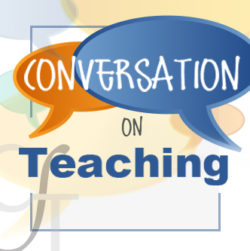9/14 workshop: wireless in the classroom: is a ban on student laptop use during class a good idea?
 time & date: 4:10 – 5:30 p.m., tuesday, september 14
time & date: 4:10 – 5:30 p.m., tuesday, september 14
facilitator:derek bruff, assistant director, cft
audience: faculty, graduate and professional students, post-docs, and staff
panelists:
cherrie clark, managerial studies
jim lovensheimer, music history and literature;
pearl sims, leadership, policy, & organizations
recent stories from the washington post and npr describe choices by university instructors to ban the use of laptops by students during class. many instructors note that students often use laptops not for taking notes, but to distract themselves and their peers by checking facebook, shopping for shoes, or even watching videos with the sound turned up. you may have seen the youtube video of a university of oklahoma professor who froze a laptop in liquid nitrogen, then smashed it to pieces in order to make this point to his students. on the other hand, other instructors ask their students to bring their laptops and other mobile devices to class so that they can use them productively during class. for instance, abilene christian university is in the third year of its acu connected iphone initiative in which all undergraduates are provided iphones and faculty are leveraging the devices during class.
in this conversation on teaching, we’ll explore the pros and cons of wireless internet access in our classrooms. should the responsibility for paying attention during class be placed on students? under what conditions is it appropriate to ban the use of laptops by students during class? what responsibility does an instructor have in engaging students during class so that their laptops aren’t tempting distractions? given that half of our students have internet-enabled smart phones, should instructors be leveraging this resource in the classroom? our panelists will share their diverse perspectives this topic in opening remarks, then we’ll continue exploring these questions through roundtable discussion.
click here to register.

leave a response